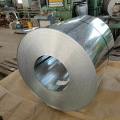BiznesOferty.pl to miejsce, w którym przedsiębiorcy zamieszczają oferty i ogłoszenia w celu nawiązywania kontaktów biznesowych. Znajdziesz tu oferty handlowe, sprzedaży, zlecenia, pomysły na własny biznes, ogłoszenia współpracy i inne. Działamy od 2003 roku.
- Biznes Oferty.pl
- / Hurtowa Giełda Towarów
- / Rolnictwo, żywność
- / Mączka bazaltowa wysokogatunkowa
Treść oferty
Mączka bazaltowa wysokogatunkowa
- Id oferty: 239566
- Info
- Dodana: 18.11.2024
- Ważna do: 16.07.2025
- Dodana: 18.11.2024
- Ważna do: 16.07.2025
- Odwiedzin: 189




- Cena:
- 190 EUR
- Ilość w cenie:
- 1 tony
- Dostępna ilość:
- 4000 tony
- Min. zamówienie:
- 24 tony
- Termin wysyłki:
- 3-4 dni
- Transport:
- do uzgodnienia
Zajmujemy się sprzedażą wysokogatunkowego produktu, przeznaczonego do użyźniania gleby w minerały dla zwiększenia plonów. produkt eksportujemy na kraje borykające się z suszą . produkt zatrzymuje wodę w glebie .
mączkę bazaltową: naturalne rozwiązanie dla zwiększenia plonów
Mączka bazaltowa, naturalny produkt ze skał wulkanicznych, zyskuje powszechną uwagę w rolnictwie ze względu na swoją zdolność do poprawy zdrowia gleby i zwiększenia produktywności upraw. Jej zastosowanie w rolnictwie sięga starożytnych praktyk, w których obserwowano, że osady popiołu wulkanicznego tworzyły żyzne ziemie, takie jak słynne gleby wulkaniczne Jawy i Neapolu. Współczesne rolnictwo wykorzystało tę wiedzę, zamieniając bazalt w drobno zmielony produkt, który zapewnia niezliczone korzyści zarówno rolnikom, jak i ekosystemom.
1. Początki i ewolucja zastosowania mączki bazaltowej
Historycznie regiony z aktywnością wulkaniczną były cenione za żyzne gleby, bogate w niezbędne minerały. Ta obserwacja skłoniła naukowców do zbadania bezpośredniego zastosowania bazaltu, powszechnej skały wulkanicznej, jako dodatku do gleby. Odkrycie, że mielony bazalt może powoli uwalniać składniki odżywcze z czasem, zrewolucjonizowało zrównoważone praktyki rolnicze. Obecnie mączka bazaltowa jest chwalona za przyjazny dla środowiska, długotrwały wkład w żyzność gleby i jest akceptowana na całym świecie, szczególnie w obszarach poszukujących ekologicznych i regeneracyjnych metod rolniczych.
2. Z czego składa się mączka bazaltowa i co zawiera?
Mączka bazaltowa powstaje w wyniku drobnego mielenia skały bazaltowej, co skutkuje substancją przypominającą proszek. Zawiera niezbędne minerały i pierwiastki śladowe, takie jak:
• Krzem (Si): Wspomaga wytrzymałość roślin i odporność na szkodniki.
• Wapń (Ca): Poprawia strukturę gleby i równowagę pH.
• Magnez (Mg): Wspomaga fotosyntezę i metabolizm roślin.
• Żelazo (Fe): niezbędne do syntezy chlorofilu.
• Potas (K): Wspomaga owocowanie i kwitnienie.
• Pierwiastki śladowe: Obejmują mangan, cynk i miedź, które wspomagają różne funkcje enzymatyczne i fizjologiczne roślin.
Understanding Basalt Flour: A Natural Solution for Enhanced Crop Yield
Basalt flour, a natural volcanic rock product, is gaining widespread attention in agriculture for its ability to improve soil health and boost crop productivity. Its use in agriculture traces back to ancient practices where volcanic ash deposits were observed to create fertile lands, such as the famed volcanic soils of Java and Naples. Modern agriculture has harnessed this insight, turning basalt into a finely milled product that provides myriad benefits to farmers and ecosystems alike.
1. The Origins and Evolution of Basalt Flour Usage
Historically, regions with volcanic activity have been celebrated for their fertile soils, rich in essential minerals. This observation led scientists to explore the direct application of basalt, a common volcanic rock, as a soil amendment. The discovery that ground basalt can slowly release nutrients over time revolutionized sustainable farming practices. Today, basalt flour is lauded for its eco-friendly, long-lasting contributions to soil fertility and is embraced worldwide, especially in areas seeking organic and regenerative farming methods.
2. What is Basalt Flour Made of and What Does It Contain?
Basalt flour is created by finely grinding basalt rock, resulting in a powder-like substance. It contains essential minerals and trace elements such as:
• Silicon (Si): Promotes plant strength and resistance to pests.
• Calcium (Ca): Improves soil structure and pH balance.
• Magnesium (Mg): Aids in photosynthesis and plant metabolism.
• Iron (Fe): Vital for chlorophyll synthesis.
• Potassium (K): Enhances fruiting and flowering.
• Trace elements: Includes manganese, zinc, and copper, which support various enzymatic and physiological plant functions.
3. How Much Basalt Flour to Use?
The recommended dosage depends on soil type, crop needs, and existing soil conditions. General guidelines are:
• For initial soil amendment, apply 1–5 tons per hectare.
• For ongoing maintenance, use 100–200 kilograms per hectare annually.
• Conduct soil testing to determine precise nutrient requirements and adjust quantities accordingly.
4. How to Apply Basalt Flour
• Broadcast Application: Spread basalt flour evenly across fields before plowing or tilling.
• Spot Application: Target specific plants or rows by sprinkling around the base of crops.
• Mixing with Compost: Combine basalt flour with organic compost to amplify microbial activity and nutrient availability.
• Irrigation Systems: For finer basalt flour, it can be mixed with water and applied via irrigation to ensure even distribution.
5. Suitable and Unsuitable Crops for Basalt Flour
Basalt flour is versatile and suitable for most crops, including:
• Cereals and grains (e.g., rice, maize, wheat).
• Fruits and vegetables (e.g., tomatoes, peppers, bananas).
• Tubers (e.g., cassava, yams).
• Tree crops (e.g., cocoa, oil palm).
However, plants that prefer nutrient-poor, acidic soils (e.g., blueberries or certain orchids) may not benefit significantly from basalt flour, as its calcium content could raise soil pH beyond their preference.
6. Sustainability and Carbon Sequestration Benefits of Basalt Flour
One of the most compelling reasons to use basalt flour is its eco- friendliness and contribution to sustainability. In addition to replenishing soil minerals, basalt flour plays a key role in addressing climate change:
1. Acts as a Carbon Sink:
Basalt flour facilitates a process called enhanced weathering, where the natural breakdown of silicate minerals reacts with carbon dioxide (CO₂) in the atmosphere. During this reaction, CO₂ is chemically transformed into stable carbonates, which are then stored in the soil or washed into oceans, where they remain locked away for thousands of years. This process not only reduces greenhouse gas concentrations but also complements broader carbon sequestration strategies.
2. Reduces Dependence on Synthetic Fertilizers:
By naturally replenishing soil nutrients, basalt flour minimizes the need for synthetic fertilizers, whose production is energy- intensive and generates significant CO₂ emissions. Using basalt flour aligns with sustainable farming goals by reducing agriculture’s carbon footprint.
3. Improves Soil Resilience:
The use of basalt flour fosters long-term soil health by boosting organic matter, enhancing water retention, and encouraging microbial activity. Healthier soils are more resilient to extreme weather conditions, which are becoming increasingly common due to climate change.
4. Supports Regenerative Agriculture:
Basalt flour integrates seamlessly into regenerative farming practices, helping farmers rebuild degraded soils while contributing to global carbon capture efforts.
7. Why is it Worth Using Basalt Flour?
• Nutrient Release: Slow-release minerals reduce the need for synthetic fertilizers.
• Sustainability: A natural product, basalt flour aligns with organic and regenerative agricultural practices.
• Carbon Sequestration: Acts as a natural carbon sink through enhanced weathering, mitigating climate change.
• Improved Soil Health: Enhances soil structure, water retention, and microbial activity.
• Crop Resilience: Strengthens plants against pests, diseases, and environmental stresses.
• Cost- Effectiveness: Once applied, its effects last for years, reducing the frequency of soil amendments.
In summary, basalt flour offers Nigerian agricultural corporations not only a sustainable and effective method for enhancing crop yield but also a means to combat climate change by sequestering carbon. Its mineral-rich composition, environmental benefits, and long-lasting impact make it an investment in the health of both crops and the planet. Adopting basalt flour in agricultural practices is a step toward securing food security while fostering environmental stewardship.
produkt BIG /BEG lub pakowany 25kg
produkt suchy sypki
100-1500 KG /ha przy wyjałowionej ziemi i zakwaszonej
cena EXW . towar wysyłamy również drogą morską /We also ship the goods by sea
- Miejscowość:
- Krępiec
- Województwo:
- lubelskie
- Status:
- Konto firmowe
- W BiznesOferty.pl:
- ponad 9 lat
Inne oferty dopasowane tematycznie:
Więcej ofert firmy:
- Odzież, obuwie, tekstylia (2435)
- Rolnictwo, żywność (2132)
- Chemia, oleje, paliwa (1702)
- Zdrowie, uroda (1088)
- Budownictwo (890)
- Inne ... (879)
- Medycyna, farmacja (742)
- Przemysł, automatyzacja (712)
- Meble, wyposażenie wnętrz (697)
- AGD i RTV (357)







